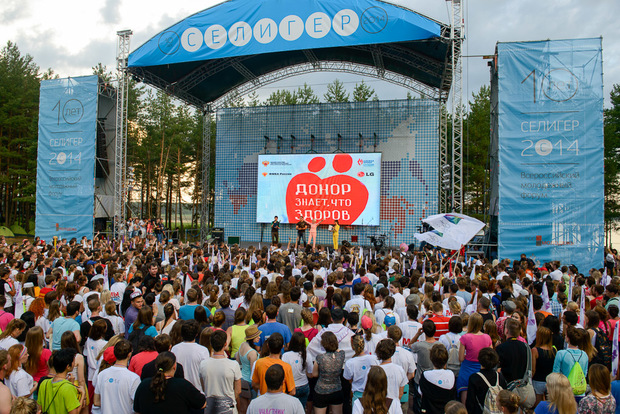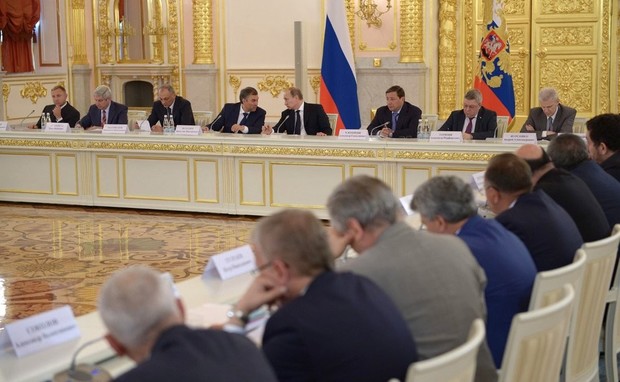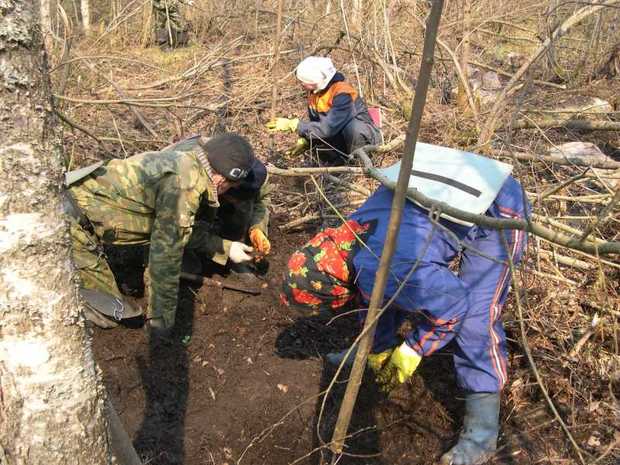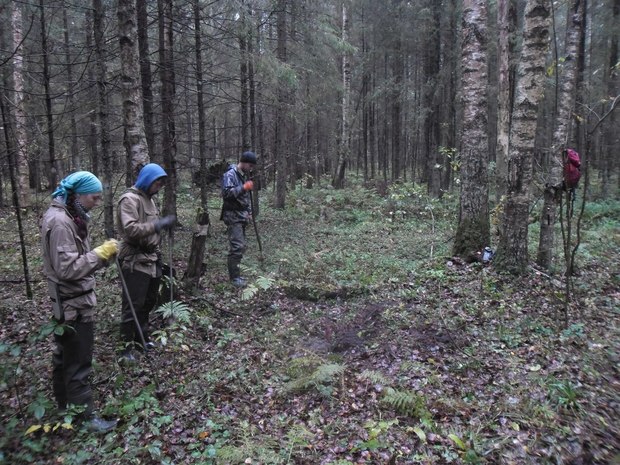''Search expeditions help to understand war is mud, pain and bloodbath''
Sociologist Iskander Yasaveyev about the danger of patriotic games with the young
The words ''patriotism, ''homeland'' are used more often on the eve of Victory Day than usually. If we can presuppose what a meaning people give to these notions who got Soviet education and grew up with songs and films, it is difficult to judge the attitude of the digital generation, as sociologists call the modern young, to patriotic rhetoric. Youth Research Centre of Higher School of Economy (Saint Petersburg) has been studying the phenomenon of patriotic education in our country for many years. Worker of the centre Iskander Yasaveyev is the author of one of the endeavours: he studied the rhetoric of Russian authorities towards the young in the last four years on the basis of programmatic documents. The sociologist shared the results with Realnoe Vremya.
''The young is seen as a source of a possible protest''
Mr Yasaveyev, let's start our conversation with the recent events: many people did not expect young people to participate in the protest campaign on 26 March. Will this event lead to greater attention of the country to the young?
It was supposed that the Russian young was apolitical, protest is getting older – famous oppositionists are already about 40 years old and older. According to my observations, considerable part of the comments about 26 March came to the statement that ''Navalny took kids there threatening with police bats''. The very use of the category ''kids'' towards 16-19-year-old people raises questions. It is unlikely that somebody is able to say the age range of the protest on 26 March. The word ''kids'' is a marker in this case. It shows that the authorities and dependent commentators use rhetoric of irrationality according to which there are irrational, inexperienced, ignorant people and those who manipulate them. Manipulation is the central image for this rhetoric. I don't think there is some real care for the ''kids''. In my opinion, showing Navalny as ''manipulator'' is the goal.
We have been seeing greater attention of the state to the young since the middle of the 2000s. State youth politics programmes, education strategies, numerous forums (Terra Scientia, Seliger) speak about the importance of the ''youth question'' for the authorities. A so-called patriotic work is augmenting, lectures about fight against extremism aimed at neutralisation of protest potential of the young are taking place at schools and universities. I can presuppose that events in other countries affected it. There were many young protest participants in Ukraine, Georgia. Scholarism student movement was very strong in Hong Kong. The Russian authorities consider the experience of other countries and understand that at a moment the young can play an important role in changes. I presuppose that the attention of the authorities to the young is explained by fear for their positions. It was not caused by ideas that they need to help the young, expand its life chances, education and job opportunities but pragmatic interests because the young is seen as a source of a possible protest.

''State youth politics programmes, education strategies, numerous forums speak about the importance of the ''youth question'' for the authorities. Photo: ullica.ru
A more active ''work with the young'' due to the latest events proves this. But I think it is done clumsily. The young will feel nothing but repulsion. In the Soviet era, I saw a period when there was an unclear, sometimes ironic, more often indifferent attitude to Komsomol, especially at the end of the 1980s. And I think if the authorities augment the political rhetoric, the critical attitude of the young to this rhetoric and very authorities will only grow. What will it lead to? Let's see. A period of uncertainty is taking place now.
''Threat'', ''protection'' and ''traditional values'' are leitmotifs of the authoritative rhetoric
How does this patriotic rhetoric look?
We recently analysed the rhetoric of the powerful elite towards the young from 2012 to 2016. It is a continuance of the projects that Youth Research Centre of the Higher School Economy and Region Scientific and Research Centre under Elena Omelchenko dealt with. The results of the previous research are presented in a book with a distinctive title — Homeland Begins: Youth in the Labyrinths of Patriotism.
There are several fixed features of the authoritative rhetoric towards the young that we call leitmotifs. An ''external threat'' is the first of them. This construction combines with the rhetoric of irrationality: as it is said, young people are an object of an aimed influence of external forces interested in destabilisation of the situation in Russia. What is more, the image of the external threat is used but not in detail. In other words, it is unclear who threatens: the USA, Western Europe, special services, Ukraine, Baltic countries, China? We analysed speeches of Russian President Vladimir Putin when he talked about the youth problem. What is more, texts of state programmes, strategies, reports of the Federal Agency on Youth Affairs were analysed. The leitmotif of the external threat is everywhere.

This leitmotif is used together with the leitmotif of protection. On the one hand, the young is illustrated as an object for protection, on the other hand, as a subject for protection, that is to say, it needs to be prepared to protect the homeland.
Vladimir Putin (at the session of the Russian Presidential Council for Interethnic Relations on 3 July 2014): ''Unfortunately, there is a constant struggle going on in the world for ideological and informational domination. The goal is either to weaken certain countries, or to create a competitive advantage in politics or the economy by artificially provoking conflicts linked in one way or another to ethnic issues. We need constant systematic efforts to protect this country, its younger generation from such risks, to strengthen civic solidarity and interethnic accord.''
Traditional values are the third leitmotif linked with the two previous ones. In other words, there is a kind of external challenges that are opposed to ''religious and moral bearings based on the thousand-year-old Russian culture'', traditional values that are true a priori.
Report on Youth and Youth Politics in Russia in the context of Global Tendencies by Federal Agency on Youth Affairs in 2015: ''In the information space, an alarming tendency is seen in augmentation of threats of manipulation of the mass conscience, imposition of knowledge and ideas, norms and values that are strange for the Russian mentality. Formation of true religious and moral bearings based on the thousand-year-old Russian culture is the most important condition of the opposition to these threats.''
At the meeting with laureates of all-Russian 2015 Teacher of the Year contest, Vladimir Putin claimed: ''We need to learn how to distinguish a true culture from a subculture that has no value and, on the contrary, leads in another direction.'' A question arises: who decides what is true and what not? It is not told what is the foundation to distinguish ''true values'' and ''quasi-values''. They think it is obvious. In our opinion, it is not.
''We don't know everything about the young''
You said the young was supposed to be apolitical. This is why its participation in the protests was unexpected. What is the sentiment among the young?
I am afraid of talking about the young in general because the young is different. There is the politicised young. There are young people who are active but only at a civil level. There is the young living in big and small cities, the young in the countryside. It is difficult to compare the young of Petersburg and Northern Caucasus. And an unexpected protest behaviour of the young means we don't know everything about it. My colleagues admit that students were examined while schoolchildren – almost no. What is going on among them? Not television but the Internet, social networks attract them. But it is the first approach. We can presuppose an ironic attitude to the young is becoming more popular among young people. There are many information sources, young people can use the Internet and compare. Independent information sources can be used. One can be in front of the TV in the evening. The comparison obviously won't be in favour of the dependent media. When all federal media kept silence on what was going on 26 March while social networks were full of it, it was unlikely to improve the trust in television and the power that controls it.
This is why I can say at the moment that is it difficult to estimate politicisation perspectives of the young, civil participation. But colleagues from Youth Research Centre presuppose the young will be a candidate for participation in decisions more and more, decide the fate of their city, region and country, in general. It can have different forms, not necessarily political.

''Fights ended at the end of June 1942 where we are working, near Myasnoy Bor village in Novgorod Oblast. This district was liberated in 1944, they all could be buried. But almost anybody cared for it.'' Photo: отечестворт.рф
You participate in search operations, talk to the young that can be considered as patriotic. What does it think of patriotism?
Search movements have many meanings, including a very powerful anti-war meaning. Novices come to digs. They are likely to have seen films about war, for example, Panfilov's Twenty-Eight Guardsmen, saw stickers ''To Berlin'' or ''We Can Repeat''. But when they come to the forest, they see unburied remains of soldiers that have been laying since the war. Fights ended at the end of June 1942 where we are working, near Myasnoy Bor village in Novgorod Oblast. This district was liberated in 1944, they all could have been buried. But almost anybody cared for it. The remains had been laying on surface for decades. Local authorities, local residents knew about it. But only Nikolay Orlov and his relatives tried to do something, informed the dead's relatives. Sometimes the authorities dug the ground again with the remains, personal things, medallions, ammunition in the places where there were many remains, planted fir trees. A school kid sees how his homeland has been treating those who died for decades. On the other hand, he hears: ''Nobody is forgotten'', ''Your Name is Eternal''…
Searchers understand that war is, first of all, a tragedy. Four years ago, we found remains of an officer and a spoon. The word ''Skida'' was carved on it. We reached out to Novgorod and Kazan search staffs. And they said it was Junior Political Instructor Konstantin Skida from Ukraine. It was known which rifle division he fought in, No. 165. We found memories of the survivors of these fights: the division was thrown to join the 2nd Shock Army, without artillery preparation, without giving an accurate direction. The soldiers attacked an open place shouting ''hurrah'' and lost 1/3 of their soldiers in the first fight through positions of our own divisions under fire and remained there. We still find remains of soldiers in this forest. In some places, a dig followed a dig. Searchers work in different regions where there were fights – in Novgorod Oblast, Pskov, Leningrad, Smolensk, Volgograd, Karelia, etc. – unburied remains of soldiers are found everywhere. In case of the 2nd Shock Army, it was supposed for a long time that those who lay there are all Vlasov's supporters, betrayers. Though it is not true, Vlasov was the commander of the army, but his army did not switch to Hitler's side. It died almost completely with weapons in its arms. But the same thing happened everywhere where fights took place.

''Searchers understand that war is, first of all, a tragedy.'' Photo: vk.com
I read books written by searchers, their essays and interviews with them. The majority are critical of the bombast of the Russian authorities, meetings. It irritates them a lot. And many people go to the forest before 9 May and to not to hear bluster on TV, not to watch films. To go from this empty talk. It is not my thought. It is a thought of recent searcher Sergey Kotilevsky. He thought that a forest with unburied remains of soldiers is not what helps patriotism: ''It is how the country treated its soldiers.'' Search expeditions are likely to help to understand that war is mud, pain and nonsense, bloodbath where you would not have chances to survive if you were called up in 1941 or 1942.